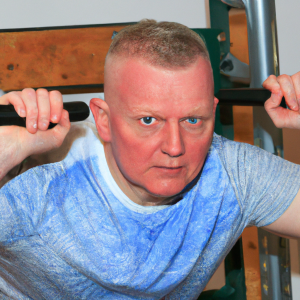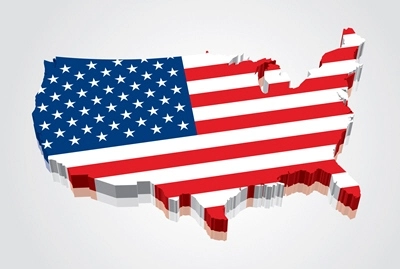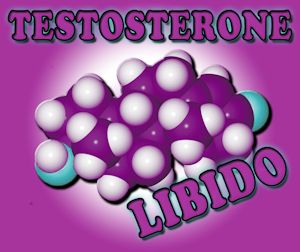
It is often said that health and wellness are intrinsically linked to a person's lifestyle, which has far-reaching consequences on various aspects of their life, including sexual health. This article sheds light on an often taboo yet vital subject - the influence of body weight and diet on male genital size, or more formally, virility.
Understanding the Interconnection: Body Weight and Virility
Body weight and virility are connected in more ways than one might anticipate. Extensive research posits that obesity, a growing health dilemma in today's world, could negatively impact the size of a man's genitals. This phenomenon occurs as excess fat forms a panniculus- a large apron of fat drooping down from the abdomen- and engulfs the penile shaft, subsequently making it appear shorter.
The Complicating Conundrum: Hormonal Imbalance
Scientifically speaking, the nexus between weight, hormones, and virility can be quite complex. Overweight or obese men frequently encounter hormonal imbalances, specifically decreased testosterone levels, which directly affects the growth and development of penile tissues. Further exacerbated by unhealthy body weight, these hormonal change may, in turn, reduce penis size.
A Friend or Foe: Dietary Factors
What we eat plays a crucial role in shaping our overall health, including our sexual vigor. Consuming too much processed, fatty, and high-sugar food can cause visceral fat accumulation around the abdomen, pushing the penis inward and thereby reducing its visible length. Moreover, a poor diet can lead to diminished blood flow. An inadequate vascular network negatively impacts virility since adequate penile blood flow is indispensable for maintaining size and ensuring proper erectile functions.
The Power of Healthy Nutrient: Boosting Virility
On a positive note, eating a balanced diet rich in lean proteins, fruits, vegetables, and whole grains can make a significant difference. Nutrients such as zinc, Vitamin E, and omega-3 fatty acids are essential for maintaining healthy testosterone levels, improving blood flow, and supporting the healthy development of genital tissues. Ensuring your diet incorporates these nutrients can potentially enhance virility.
Tipping the Scales: Weight Loss and Virility
Embracing a healthier lifestyle by achieving and maintaining an optimal weight can lead to improved genital size and better sexual health. Weight loss, especially in overweight and obese individuals, can reduce the panniculus and increase the penile length visible externally. More so, a healthier body often contributes to balanced hormone levels, ensuring optimal penis development and size.
In conclusion, healthy dietary habits coupled with optimal bodyweight play a crucial role in influencing virility. A conscious effort to maintain a balanced diet and ideal weight cannot only improve sexual health but also ensure an overall enhanced living. It is important to remember that size is just one aspect of virility and that communication, mutual respect, and emotional intimacy are equally, if not more, significant for a satisfying sexual relationship.
Contact Us Today For A Free Consultation

- Penile Atrophy: Recognizing Early Signs and Importance of Timely Intervention for American Males [Last Updated On: February 22nd, 2025] [Originally Added On: February 22nd, 2025]
- Unveiling the Facts: Penis Size Transformation [Last Updated On: February 25th, 2025] [Originally Added On: February 25th, 2025]
- Size Perception: Unveiling the Phenomenon of Penis Shrinkage and Its Root Causes [Last Updated On: February 26th, 2025] [Originally Added On: February 26th, 2025]
- Embracing Natural Progression: Understanding the Impacts of Age on Male Physicality [Last Updated On: February 27th, 2025] [Originally Added On: February 27th, 2025]
- Deciphering the Enigma: Linking Hormonal Balance, Health and Penile Size Variations [Last Updated On: February 28th, 2025] [Originally Added On: February 28th, 2025]
- Addressing the Elephant in the Room: Understanding and Discussing Penis Shrinkage [Last Updated On: March 1st, 2025] [Originally Added On: March 1st, 2025]
- Understanding the Stress-Penis Health Nexus: An Objective Exploration [Last Updated On: March 2nd, 2025] [Originally Added On: March 2nd, 2025]
- Unveiling Andropause: Understanding Male Menopause and Its Effects on Penile Size [Last Updated On: March 2nd, 2025] [Originally Added On: March 2nd, 2025]
- Comprehensive Overview of Testosterone: Roles in Muscle Growth, Fat Distribution, Bone Density, and Age-Related Changes [Last Updated On: March 3rd, 2025] [Originally Added On: March 3rd, 2025]
- Expectations After Prostate Surgery: Physical and Psychological Impacts [Last Updated On: March 4th, 2025] [Originally Added On: March 4th, 2025]
- Exploring the Impact of Exercise on Male Sexual Health and Erectile Function [Last Updated On: March 5th, 2025] [Originally Added On: March 5th, 2025]
- Exploring the Impact of Vascular Health on Penis Size and Erectile Function [Last Updated On: March 6th, 2025] [Originally Added On: March 6th, 2025]
- Unveiling the Truth: Genetics, Lifestyle, and the Phenomenon of Penis Shrinkage in American Males [Last Updated On: March 6th, 2025] [Originally Added On: March 6th, 2025]
- Impact of Smoking and Alcohol on Male Sexual Health: Lifestyle Factors Unveiled [Last Updated On: March 7th, 2025] [Originally Added On: March 7th, 2025]
- Understanding Penis Size Concerns: Myths, Causes, and Real Solutions for Men's Health [Last Updated On: March 8th, 2025] [Originally Added On: March 8th, 2025]
- Comprehensive Insights into Chronic Illnesses Impacting Male Genital Health: A Holistic Approach [Last Updated On: March 9th, 2025] [Originally Added On: March 9th, 2025]
- Unveiling the Link Between Diabetes and Reduced Size: A Metabolic Perspective [Last Updated On: March 12th, 2025] [Originally Added On: March 12th, 2025]
- Unveiling the Truth: The Impact of Environmental Toxins on Male Genital Health [Last Updated On: March 13th, 2025] [Originally Added On: March 13th, 2025]
- A Global Insight into Penile Shrinkage: Understanding and Addressing a Universal Concern Among Men [Last Updated On: March 15th, 2025] [Originally Added On: March 15th, 2025]
- Weight Loss Reverses Penis Shrinkage: Evidence and Benefits for American Males [Last Updated On: March 17th, 2025] [Originally Added On: March 17th, 2025]
- Obesity's Impact on Male Genital Health: Understanding Penis Shrinkage and Solutions [Last Updated On: March 18th, 2025] [Originally Added On: March 18th, 2025]
- Inflammation and Oxidative Stress: Key Factors in Penis Shrinkage and Management Strategies [Last Updated On: March 18th, 2025] [Originally Added On: March 18th, 2025]
- Hypertension's Impact on Penile Size: Understanding Shrinkage in American Males [Last Updated On: March 19th, 2025] [Originally Added On: March 19th, 2025]
- Natural Remedies for Preventing Penile Shrinkage: Herbs, Supplements, and Lifestyle [Last Updated On: March 19th, 2025] [Originally Added On: March 19th, 2025]
- Hormonal Imbalances and Penis Shrinkage: Understanding Endocrine Disruptions in Males [Last Updated On: March 19th, 2025] [Originally Added On: March 19th, 2025]
- Understanding Penile Aging: Size Changes, Causes, and Health Maintenance Tips [Last Updated On: March 20th, 2025] [Originally Added On: March 20th, 2025]
- Diet and Nutrition Strategies to Combat Penis Shrinkage in American Males [Last Updated On: March 20th, 2025] [Originally Added On: March 20th, 2025]
- Chronic Stress, Cortisol, and Penile Health: Understanding and Managing the Impact [Last Updated On: March 21st, 2025] [Originally Added On: March 21st, 2025]
- Sedentary Lifestyles and Penis Shrinkage: Impacts and Preventive Measures for American Males [Last Updated On: March 22nd, 2025] [Originally Added On: March 22nd, 2025]
- Penile Measurement Techniques and Understanding Shrinkage Factors [Last Updated On: March 22nd, 2025] [Originally Added On: March 22nd, 2025]
- Understanding Penis Size: Measurement, Factors, and Shrinkage Management [Last Updated On: March 22nd, 2025] [Originally Added On: March 22nd, 2025]
- Penis Shrinkage and ED: Causes, Overlap, and Treatment Options for American Males [Last Updated On: March 23rd, 2025] [Originally Added On: March 23rd, 2025]
- Prostate Health and Its Impact on Penis Size: Understanding and Managing Changes [Last Updated On: March 23rd, 2025] [Originally Added On: March 23rd, 2025]
- Understanding Penis Shrinkage: Causes, When to See a Urologist, and Treatment Options [Last Updated On: March 23rd, 2025] [Originally Added On: March 23rd, 2025]
- Understanding Penile Shrinkage: Causes, Prevention, and Health Tips for American Men [Last Updated On: March 23rd, 2025] [Originally Added On: March 23rd, 2025]
- HRT's Role in Preventing Penis Shrinkage: Benefits and Risks for American Males [Last Updated On: March 24th, 2025] [Originally Added On: March 24th, 2025]
- Relationship Dynamics and Penis Size Perception: Understanding Shrinkage and Its Impacts [Last Updated On: March 24th, 2025] [Originally Added On: March 24th, 2025]
- Medications Linked to Penile Shrinkage: Causes, Risks, and Management Strategies [Last Updated On: March 24th, 2025] [Originally Added On: March 24th, 2025]
- Understanding Penile Atrophy: Causes, Symptoms, and Importance of Urological Exams [Last Updated On: March 24th, 2025] [Originally Added On: March 24th, 2025]
- Preventing Penis Shrinkage: Lifestyle Tips for American Males [Last Updated On: March 24th, 2025] [Originally Added On: March 24th, 2025]
- Understanding Penile Shrinkage: Causes, Impacts, and Breaking the Stigma in American Men [Last Updated On: March 25th, 2025] [Originally Added On: March 25th, 2025]
- Understanding Penile Atrophy: Causes, Effects, and Treatments for American Men [Last Updated On: March 25th, 2025] [Originally Added On: March 25th, 2025]
- Smoking and Penis Shrinkage: Cessation Strategies and Genital Health Recovery [Last Updated On: March 25th, 2025] [Originally Added On: March 25th, 2025]
- Sleep Disorders and Penis Shrinkage: Impacts on American Males' Sexual Health [Last Updated On: March 25th, 2025] [Originally Added On: March 25th, 2025]
- Environmental Pollution's Impact on Male Reproductive Health and Penis Size in America [Last Updated On: March 25th, 2025] [Originally Added On: March 25th, 2025]
- Peyronie's Disease: Understanding Penis Shrinkage and Treatment Options for American Males [Last Updated On: March 25th, 2025] [Originally Added On: March 25th, 2025]
- Anti-Inflammatory Diets: A Strategy to Prevent Penis Shrinkage in American Males [Last Updated On: March 26th, 2025] [Originally Added On: March 26th, 2025]
- Sleep's Impact on Sexual Health: Preventing Penile Shrinkage in American Males [Last Updated On: March 26th, 2025] [Originally Added On: March 26th, 2025]
- Weight Loss and Penis Size: Understanding Changes in American Men [Last Updated On: March 26th, 2025] [Originally Added On: March 26th, 2025]
- Chronic Illnesses and Penis Shrinkage: Causes, Impacts, and Management Strategies for American Males [Last Updated On: March 26th, 2025] [Originally Added On: March 26th, 2025]
- Meditation and Stress Reduction: Key to Preventing Penis Shrinkage in American Men [Last Updated On: March 26th, 2025] [Originally Added On: March 26th, 2025]
- Coping with Perceived Penis Shrinkage: Psychological Strategies for American Men [Last Updated On: March 26th, 2025] [Originally Added On: March 26th, 2025]
- Metabolic Syndrome Linked to Penis Shrinkage in American Males: Causes and Prevention [Last Updated On: March 26th, 2025] [Originally Added On: March 26th, 2025]
- Genetic Variability and Its Impact on Penis Size and Shrinkage [Last Updated On: March 26th, 2025] [Originally Added On: March 26th, 2025]
- Innovative Treatments for Penis Shrinkage: Stem Cells, Shockwave, and Pharmacological Advances [Last Updated On: March 27th, 2025] [Originally Added On: March 27th, 2025]
- Boost Testosterone Naturally: Diet, Exercise, and Lifestyle to Prevent Penis Shrinkage [Last Updated On: March 27th, 2025] [Originally Added On: March 27th, 2025]
- Inflammation's Role in Penis Shrinkage: Cellular Mechanisms and Prevention Strategies [Last Updated On: March 27th, 2025] [Originally Added On: March 27th, 2025]
- Cardiovascular Fitness: Key to Preventing Penile Shrinkage in American Men [Last Updated On: March 27th, 2025] [Originally Added On: March 27th, 2025]
- American Men's Experiences with Penile Atrophy: Causes, Treatment, and Coping Strategies [Last Updated On: March 27th, 2025] [Originally Added On: March 27th, 2025]
- Guide to Accurate Penis Measurement and Understanding Shrinkage for American Males [Last Updated On: March 27th, 2025] [Originally Added On: March 27th, 2025]
- Preventing Penile Shrinkage: Enhancing Vascular Health in American Males [Last Updated On: March 27th, 2025] [Originally Added On: March 27th, 2025]
- Androgens' Crucial Role in Preventing Penile Shrinkage Among American Males [Last Updated On: March 27th, 2025] [Originally Added On: March 27th, 2025]
- Managing Penis Shrinkage in Aging Men: Causes, Impacts, and Interventions [Last Updated On: March 27th, 2025] [Originally Added On: March 27th, 2025]
- Regular Exercise: A Key to Preventing Age-Related Penile Shrinkage in Men [Last Updated On: March 27th, 2025] [Originally Added On: March 27th, 2025]
- Emerging Therapies Revolutionize Treatment of Penis Shrinkage in American Males [Last Updated On: March 28th, 2025] [Originally Added On: March 28th, 2025]
- Managing Penile Atrophy: Causes, Diagnosis, and Effective Strategies for American Males [Last Updated On: March 28th, 2025] [Originally Added On: March 28th, 2025]
- Alcohol Consumption and Penis Size: The Importance of Moderation in American Males [Last Updated On: March 28th, 2025] [Originally Added On: March 28th, 2025]
- Penis Size and Sexual Health: Function, Sensation, and Holistic Well-being [Last Updated On: March 29th, 2025] [Originally Added On: March 29th, 2025]
- Vascular Surgery: A Hopeful Solution for Penis Shrinkage in American Males [Last Updated On: March 30th, 2025] [Originally Added On: March 30th, 2025]
- Chronic Diseases and Penis Shrinkage: Insights and Management Strategies for Men [Last Updated On: March 31st, 2025] [Originally Added On: March 31st, 2025]
- Superfoods Boost Vascular Health, Prevent Penis Shrinkage in American Males [Last Updated On: April 1st, 2025] [Originally Added On: April 1st, 2025]
- Psychological Support for American Men with Perceived Penis Shrinkage: Strategies and Insights [Last Updated On: April 3rd, 2025] [Originally Added On: April 3rd, 2025]
- Andropause and Penis Shrinkage: Understanding and Managing Male Aging Symptoms [Last Updated On: April 4th, 2025] [Originally Added On: April 4th, 2025]
- Understanding and Managing Penis Shrinkage: Causes, Effects, and Support for American Males [Last Updated On: April 4th, 2025] [Originally Added On: April 4th, 2025]
- Hypertension Medications and Penile Shrinkage: Insights for American Males [Last Updated On: April 6th, 2025] [Originally Added On: April 6th, 2025]
- Chronic Stress and Penile Health: Understanding Impacts and Management Strategies [Last Updated On: April 6th, 2025] [Originally Added On: April 6th, 2025]
- Supplements and Penis Health: Evaluating Efficacy and Risks [Last Updated On: April 8th, 2025] [Originally Added On: April 8th, 2025]
- Hormonal Health and Penis Size: Understanding and Prevention Strategies for American Males [Last Updated On: April 9th, 2025] [Originally Added On: April 9th, 2025]
- Male Genital Health: Importance of Regular Check-Ups for Preventing Penis Shrinkage [Last Updated On: April 9th, 2025] [Originally Added On: April 9th, 2025]
- Postoperative Penile Shrinkage: Causes, Management, and Recovery Strategies for American Males [Last Updated On: April 10th, 2025] [Originally Added On: April 10th, 2025]
Word Count: 462




















